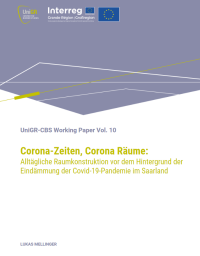Policy Paper Vol. 4
Over the course of the 20th and 21st century, different forms of cross-border cooperation have emerged and developed within the so-called Greater Region. The France Strategy of the Saarland – announced in 2014 – adds upon these existing efforts, aiming in particular to foster functional multilingualism, and cross-border cooperation in the economic, research, and cultural sphere. In this endeavour, both public and private actors are to be included into the process(es) of implementation. The announcement of the Strategy was met with notable response from the French neighbouring territories. In this context, municipalities serve a double role – on the one hand, they act as a ‚mouthpiece‘ for local interests and needs ‚on the ground‘, on the other hand, they themselves engage in and support cross-border cooperation, and serve as intermediaries for regional guidelines. Based upon quantitative and qualitative research with a focus on the local level, the following policy paper presents central recommendations for action regarding the further direction and implementation of the France Strategy, and more generally cross-border cooperation within the cross-border region of the Saarland and the French département Moselle. The recommendations are divided into five areas, touching upon activities related to the fostering of multilingualism, the support and accompaniment of activities, the fostering of netweks, as well as the further institutionalization of cross-border cooperation within the (trinational) border region.

